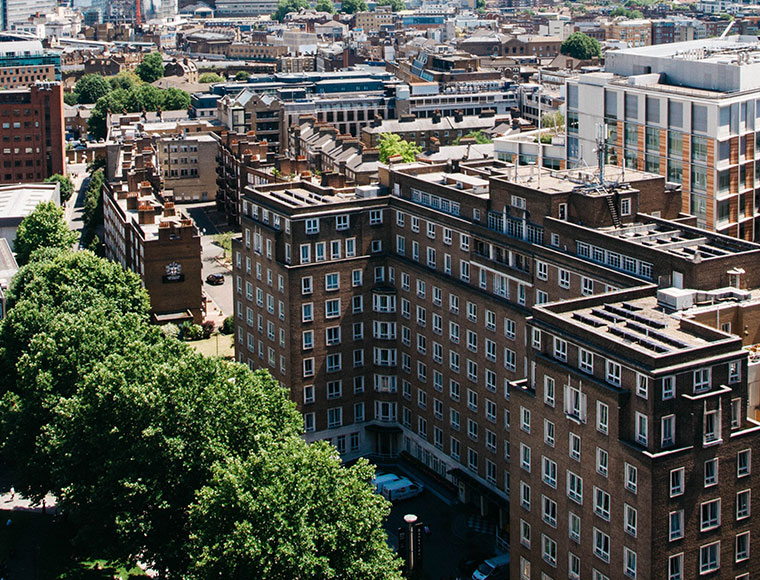The Chancellor, Jeremy Hunt, delivered his second Spring Budget on 6 March 2024. This Budget aimed to appeal to the taxpaying masses, with cuts to National Insurance and a rise to the threshold for VAT registration. But was it too little, too late for the UK economy?
We’ve summarised the main points, so you can see how the Budget will impact on you as a taxpayer and a business owner.
Summary of the main Budget announcements
The Spring Budget is likely to be the last major fiscal event before the General Election, and there was significant pressure on the governing party to deliver tax cuts. Overall, it was intended to deliver economic growth, higher investment, lower taxes and improved public services.
Growth forecast
Compared to the previous forecast, by year 5, total UK gross domestic product (GDP) is virtually unchanged whilst GDP per capita is marginally down.In future years, real GDP growth is now expected to be:
- 2024: 0.8% (previously 0.7%)
- 2025: 1.9% (1.4%)
- 2026: 2.0% (2.0%)
- 2027: 1.8% (2.0%)
- 2028: 1.7% (1.7%)
Inflation (7.3% average for 2023) is predicted to average 2.2% (slightly above target) in 2024, then to decline to 1.5% in 2025, 1.6% in 2026, 1.9% in 2027 and 2.0% in 2028.
Main tax measures
Traditionally, most tax measures are covered in the Autumn Statement. But given that we are heading into election season, as expected, there were some significant (and some less significant) tax announcements delivered by the Chancellor.
Let’s look at the main tax takeaways:
- Fuel duty: Fuel duty will be frozen at current rates for a further 12 months, to April 2026.
- National insurance: Employee’s Class 1 National Insurance (income from £1,048 to £4,189 per month) is cut from 10% to 8%, and Class 4 (self-employed, annual profits £12,570 to £50,270) is cut from 8% to 6%. Employer rates remain unchanged and all bands remain frozen.
- Alcohol duty: Alcohol duty is frozen at current rates until February 2025.
- Child benefits: From April 2024, the Higher Income Child Benefit Charge now tapers away on income between £60,000 and £80,000, instead of between £50,000 and £60,000. Previously if someone in receipt of child benefit earned > £50K, 1% of it would be clawed back for every £100 earned over £60K. From April 2024, it will be clawed back at 1% for every £200 earned over £60K. From 2026, it is intended to change the base to household income, rather than ‘highest earner’.
- Value added tax (VAT): The compulsory registration threshold for VAT will increase from £85,000 to £90,000, and the voluntary deregistration threshold from £83,000 to £88,000.
- Creative arts: Various measures were announced which will benefit the creative arts, primarily visual effects, film studios, museums, theatres and orchestras.
- Furnished holiday lets: The specific (and more-favourable) treatment for furnished holiday lets will fall away, and FHL will be treated the same as residential property letting.
- Capital gains tax: The higher-rate capital gains tax (CGT) charge of 28% on gains on residential property will be reduced to 24%.
- Multiple dwellings relief: Multiple dwellings relief is being abolished from June 2024. Previously, where someone purchased, for example, a block of five flats for £2 million, stamp duty was levied as if there were five purchases of £400K each. It will now be levied as a single £1 million purchase.
- Non-dom tax: From April 2025 the current non-dom tax system will be replaced by a new relief. This will give new arrivals full relief from UK tax on foreign income and gains for four years, after which they will be fully liable for UK tax on all income, regardless of source.
- Vaping products and tobacco: A new tax will be levied on vaping products from October 2026, together with a one-off increase in tobacco duty to discourage switching from vaping to tobacco.
Other measures
There were some other targeted duty and tax measures of note, to consider:
- The windfall tax on energy firms was extended for another year.
- Air passenger duty on non-economy-class flights was increased.
- Landfill tax was increased.
- A new ISA with an annual savings limit of £5,000 on top of current allowances will be established to encourage investment in UK companies.
- More funding will be given to HMRC to help them tackle tax evasion and close the tax gap.
- £3.4 billion is being allocated to the NHS to invest in capital projects to enhance productivity, covering areas such as better use of AI, updated existing IT systems and reducing the admin burden on NHS staff.
- The Household Support Fund, which allows councils to provide additional support for households suffering from the ongoing cost of living crisis, was extended for six months.
- The repayment period for government emergency loans to recipients of universal credit has been extended from 12 to 24 months.
Talk to us about your concerns following the Spring Budget
This was a relatively sedate Budget, in comparison to Budgets and Autumn Statements in recent years. But the question still remains as to whether the Chancellor has done enough to push UK economic growth, while also appealing to the taxpaying public.
If you have any worries or concerns following the Spring Budget, please do contact us to arrange a chat. We’ll be happy to talk you through the main business measures.
Get in touch with Accountants247 in Surbiton to talk about post-Budget planning.





